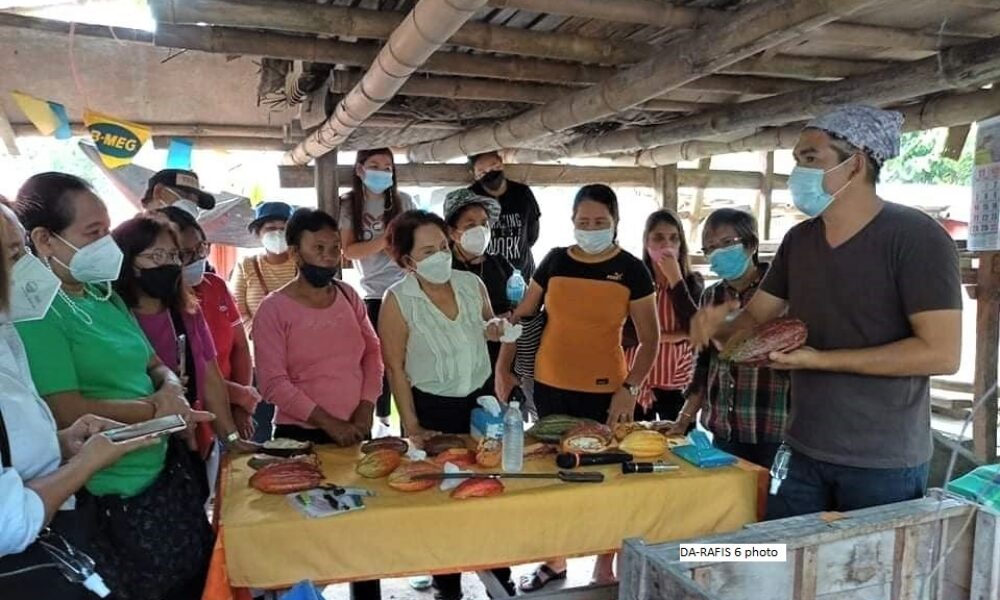
The Department of Agriculture Western Visayas (DA-WV), in partnership with the Department of Trade and Industry (DTI) and POPA Cooperative, equipped some 50 cacao growers and processors with higher level techniques and practices to produce fine flavor cacao products held recently in Iloilo City.
Cacao growers and processors from Iloilo, Negros Occidental, Antique, Guimaras, Capiz, and Aklan gathered to gain advanced cacao post-harvest approaches in producing high-quality beans that would qualify the national standards.
“This three-day training aims to equip our local growers with technologies to make quality cacao beans that could fit the Philippine National Standards (PNS). Also, we also aim for our local growers to enhance their chocolate products towards our target – the fine flavor chocolate,” said DA-HVCDP Regional Cacao Coordinator Relvin Paragua.
Louie Cena, a cacao expert from Davao City and the vice president of Cacao Pilipinas Sensory Resources Inc., shared his expertise, imparting detailed information on the best post-harvest practices such as pre-fermentation preparations, fermentation principles, and recipe development in producing good flavor and export quality cocoa beans.
He also taught the cacao processors in the region the proper pre-drying methods, which is a vital component to determine the flavor characteristic of the cocoa beans.
The cacao specialist performed a hands-on demonstration at Cabayao Farm in Dingle, Iloilo, to show the actual post-harvest techniques and procedures.
Meanwhile, DA-WV OIC-Regional Technical Director, Engr. Jose Albert Barrogo said the Department of Agriculture continuously provides interventions for developing the cacao industry in the region.
He also urged the regional council to see through the cacao value chain and formulate the cacao investment program of the provinces in such a way that the department could give relevant interventions.
“The DA is trying its best to open opportunities for the farmers, so that we can have this chance to give you all the support that you need in developing our cacao industry,” he said.
On the other hand, Regional Cacao Council chairman Buen Mondejar gave insights into the council’s developments to formulate a standardized protocol on cacao production.
“The council gathered cacao experts to discuss and come up with acceptable management practices for cacao production. Ultimately, we will have a bible to guide us on how to produce cacao,” he said.
He also underscored that this training is very timely to develop the local cacao growers’ skills and best practices on post-harvest and processing, considering that more cacao growers are now into processing. (DA-RAFIS 6)





